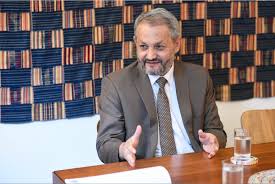By Haruna Gimba
The Global Financing Facility in support of Every Woman Every Child (GFF) has announced in Maputo, Mozambique, that 10 new countries have joined the GFF, a country-led model of development finance that brings together multiple sources of financing in a synergistic way to support countries’ priorities.
The new GFF countries are Afghanistan, Burkina Faso, Cambodia, Central African Republic, Côte d’Ivoire, Haiti, Indonesia, Madagascar, Malawi and Rwanda.
“The GFF is a broad partnership that has demonstrated in countries that the concept developed two years ago works: women, children and adolescents are benefitting from the new model of financing that the GFF has developed, leading to high demand from countries that are interested in becoming part of the GFF,” said Ferozuddin Feroz, Minister of Public Health of Afghanistan, one of the new GFF countries.
A statement from the GFF, said it is expanding beyond the 16 existing GFF countries, with the support of the governments of Canada, Norway and the United Kingdom; the Bill & Melinda Gates Foundation; and MSD for Mothers.
The Gates Foundation recently announced a $200 million pledge to the replenishment of the GFF Trust Fund, a multi-donor trust fund that is hosted by the World Bank Group and supports the work of the broader GFF partnership.
“We are pleased to announce that ten more countries supported by GFF will align partners around a country-driven investment case to save lives and improve the health and well-being of millions,” said Mariam Claeson, Director of the GFF. “With more resources the GFF can reach even more women, children and young people at the most critical periods of their lives: birth, the early years and adolescence.”
In September 2017 at the United Nations General Assembly, the GFF launched its replenishment, with the goal of raising US$2 billion to respond to countries’ interest in joining the GFF. According to reports, with $2 billion, the GFF can reach a total of 50 countries during the next five years.
Each dollar invested in the GFF Trust Fund, is catalytic and links to several sources of funding, domestic government resources, financing from the World Bank’s International Development Association (IDA) and the International Bank for Reconstruction and Development (IBRD), aligned external financing, and private sector resources.
This approach enables the estimated financing gap of US$33 billion per year to be closed. Although countries have made considerable progress during the past 25
years in improving the health and wellbeing of women, children and adolescents, too many are still dying and suffering from preventable conditions, in considerable part because of a large financing gap.
This new funding will help countries reach those who do not yet have access to quality services and accelerate progress on reproductive, maternal, newborn, child, and adolescent health and nutrition. The 50 countries the GFF could expand to in the next five years account for 96% of the US$33 billion annual financing gap and 5.2 million maternal and child deaths each year.
The World Bank Group and the United Nations launched the GFF at the Third International Conference on Financing for Development in Addis Ababa in July 2015 in support of Every Woman Every Child, and as part of a global conversation about how to finance the Sustainable Development Goals.
The GFF employs a country-driven model: each of the new countries will define its approach through a process led by the government that involves a broad range of stakeholders





